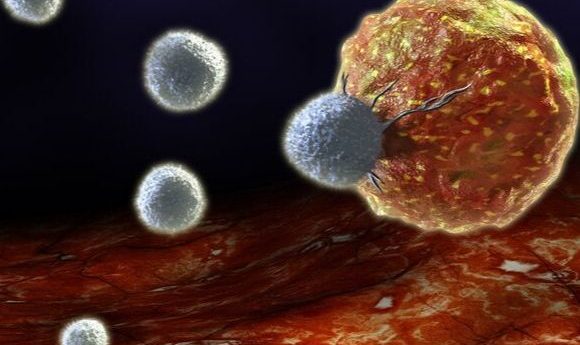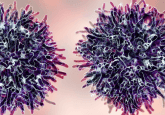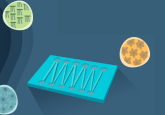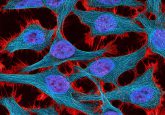Microvesicles could revolutionize cancer therapeutics

Researchers have demonstrated how microvesicles could provide a safer and more effective form of cancer therapy than chemotherapy.
A team of researchers from Michigan State University (USA) has been able to demonstrate the effectiveness of using microvesicles as a delivery agent in cancer therapeutics using a breast cancer mouse model.
These nano-sized ‘bubbles’ are a type of extracellular vesicle, released by healthy cells in our body, that play an important role in intracellular communication by acting as delivery vehicles for the transfer of genetic material between cells.
The research group, led by Masamitsu Kanada, has previously demonstrated that microvesicles are able to deliver plasmid DNA to cells and that the efficiency of delivery is partly determined by the plasmid size and sequence.
In the current study, published recently in Molecular Cancer Therapeutics, the researchers used this knowledge to demonstrate how microvesicles could be effective delivery agents for gene-directed enzyme prodrug therapy.
“What we’ve done is improve a therapeutic approach to delivering enzyme-producing genes that can convert certain drugs into toxic agents and target tumors,” explained Kanada.
Microvesicles were loaded with engineered minicircle DNA and tested in breast cancer models in mice. This minicircle DNA encodes a thymidine kinase fusion protein that activates prodrugs (ganciclovir and CB1954) in breast cancer cells.
They found that microvesicles loaded with this minicircle DNA delivered the prodrug-enzyme coding genes to cancer cells 14-times more effectively than microvesicles loaded with regular plasmids and were even more successful at killing cancerous cells.
- A pair of studies demonstrates the safety of proton beam therapy for treatment of pediatric brain cancer
- Nanoparticles used to deliver cancer inhibiting molecule
- New TARDIS liquid biopsy takes personalized medicine for cancer into the future
“Interestingly, the plasmid delivery method didn’t show any tumor cell killing,” Kanada clarified. “Yet the minicircle DNA-based therapy killed more than half of the breast cancer cells in the mice.”
The results from the study confirm that minicircle DNA delivery via microvesicles is able to effectively enable prodrug conversion and consequential tumor cell death to such an extent that it can be considered a promising approach to cancer therapy.
Microvesicles could not only offer more effective drug delivery but would actually provide a safer alternative to chemotherapy, since researchers would be able to target the treatment to cancer cells only.
Furthermore, since microvesicles are highly compatible with the human body, there would be a much lower risk of unwanted immune responses, as seen in other gene therapies.
“Conventional chemotherapy isn’t able to differentiate between tumors and normal tissue, so it attacks it all. This non-specificity can cause severe side effects and insufficient drug concentration in tumors,” Kanada stated. “If [extracellular vesicles] prove to be effective in humans, it would be an ideal platform for gene delivery and it could be used in humans sooner than we expect.”
A Phase I clinical trial using microvesicles for cancer treatment is set to begin soon in the USA, focusing on pancreatic cancer. In the meantime, the team plans to continue improving the effectiveness and safety of the method so that this promising approach can, one day soon, become a reality.




